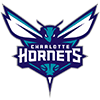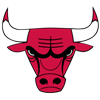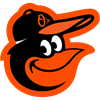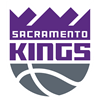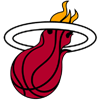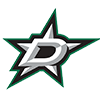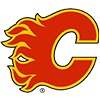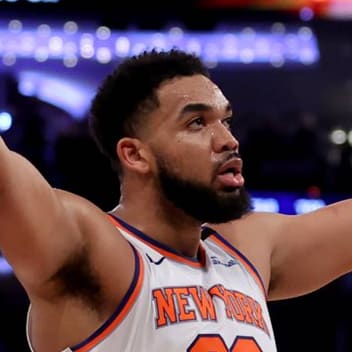The forward position houses some of the league's most elite talent -- Giannis Antetokounmpo, Jayson Tatum, Jimmy Butler, LeBron James and others. But who are the up-and-comers? For fantasy, knowing who's next is just as important as knowing who's there now.
Rising talent goes quickly in fantasy drafts as well. Managers love rostering young, exciting players. That leaves value at the end of drafts, however. Sleepers can shift fantasy fortunes, especially those found outside of the top 100.
Risers
Jaren Jackson, Grizzlies
Jackson earned his first All-Star nod last year and won the 2022-23 NBA Defensive Player of the Year award. Despite seeing just 28.4 minutes, the big man swatted a league-high 3.0 shots and notched 1.0 steals per game. His 9.6 block percentage was tied for the 11th-highest mark in NBA history.
It was also a record year for Jackson offensively, as he scored a career-high 18.6 points per game with an efficient slash line (51/36/79). Rebounding hasn't been the big man's strong suit, but Jackson still grabbed a fair 6.8 boards per game. They aren't easy to come by while playing next to Steven Adams.
This season, Jackson may be relied upon more than ever. Ja Morant is suspended for 25 contests, and Dillon Brooks' 13.6 shots per game are now in Houston. With both players off the court last year, Jackson saw a 6.5 percent usage increase, up to 28.5%. If he can combine that increased usage with development and cross
The forward position houses some of the league's most elite talent -- Giannis Antetokounmpo, Jayson Tatum, Jimmy Butler, LeBron James and others. But who are the up-and-comers? For fantasy, knowing who's next is just as important as knowing who's there now.
Rising talent goes quickly in fantasy drafts as well. Managers love rostering young, exciting players. That leaves value at the end of drafts, however. Sleepers can shift fantasy fortunes, especially those found outside of the top 100.
Risers
Jaren Jackson, Grizzlies
Jackson earned his first All-Star nod last year and won the 2022-23 NBA Defensive Player of the Year award. Despite seeing just 28.4 minutes, the big man swatted a league-high 3.0 shots and notched 1.0 steals per game. His 9.6 block percentage was tied for the 11th-highest mark in NBA history.
It was also a record year for Jackson offensively, as he scored a career-high 18.6 points per game with an efficient slash line (51/36/79). Rebounding hasn't been the big man's strong suit, but Jackson still grabbed a fair 6.8 boards per game. They aren't easy to come by while playing next to Steven Adams.
This season, Jackson may be relied upon more than ever. Ja Morant is suspended for 25 contests, and Dillon Brooks' 13.6 shots per game are now in Houston. With both players off the court last year, Jackson saw a 6.5 percent usage increase, up to 28.5%. If he can combine that increased usage with development and cross the 30-minute-per-game threshold for the first time in his career (fouls are often an issue), it could be a monster season for the young big.
Scottie Barnes, Raptors
Barnes didn't take the sophomore leap fantasy managers hoped for last season when drafting him in the fourth round. Most importantly, though, he improved as a playmaker. That development will be useful this season; starting point guard Fred VanVleet left in the summer to join the Rockets. While it's unclear right now if Barnes or newly-acquired Dennis Schroder will start at point guard, Barnes has more upside.
Shooting is Barnes' weakness. He's good at practically everything else, averaging 6.6 rebounds (2.3 offensive), 4.8 assists, 1.1 steals and 0.8 blocks in 34.8 minutes last season. His 15.3 points per game came on shooting splits of 46/27/77, resulting in the 13th-worst true shooting percentage (52.4) in the NBA.
So, what's the case for him rising up the ranks this season? Natural skill development due to his age is one factor. But even if his shooting remains poor, Barnes should see increased usage this season with VanVleet's 16.1 shots and 7.2 assists gone. The organization needs to determine what they have in Barnes and whether he can handle point guard duties.
Cam Johnson, Nets
Johnson began last season with the Suns -- the team that drafted him No. 11 overall in 2019. He suffered a meniscus tear in early November, which kept him out until mid-January. He ended up suiting up for the Suns just 17 times before he was traded at the deadline to the Nets in the deal for Kevin Durant.
Upon joining Brooklyn, Johnson was thrust into the most prominent role of his career. He averaged 16.6 points on 47/37/85 shooting, 4.8 rebounds, 2.1 assists and 1.4 steals in 30.8 minutes across 25 appearances. His strong play continued in the postseason, where he averaged an efficient 18.5 points, 5.8 boards and 2.8 assists in 38.0 minutes.
Fantasy managers should expect the 27-year-old to remain Brooklyn's third option behind Mikal Bridges and Spencer Dinwiddie. Amid a shifting role and injuries last season, Johnson still returned fifth-round per-game value in nine-category leagues. He's a potent shooter with a solid assist-to-turnover ratio and defensive upside.
Sleepers
John Collins, Jazz
Collins' career hit a low last season. It was no secret Atlanta had him on the trading block for years, and his role continued to be marginalized along the way. Part of his struggles from last season stemmed from a gruesome finger injury on his shooting hand. For his first 52 appearances, he shot just 25.3 percent from deep. During his final 19 appearances, he shot 37.8 percent from deep, almost exactly his career average from the prior five seasons (37.6%). Still, at that point, he saw only 27.6 minutes per game.
Will his fortunes change in Utah? It's unclear, but it's worth the gamble at his early Average Draft Position (106.5 on Yahoo). Collins ranked an astonishing seventh in per-game nine-category fantasy value during the 2019-20 season, where he spent 47 percent of his minutes at center and averaged 21.6 points, 10.1 rebounds, 1.5 assists, 1.6 blocks and 0.8 steals in 33.2 minutes.
Collins won't be playing center on the Jazz -- that's Walker Kessler's spot -- but coach Will Hardy's squad plays a more egalitarian style than the Hawks' heliocentric style around Trae Young. That should give Collins more opportunities to be involved. It's also on the table that he sees backup center minutes. Either way, the Jazz already have more invested in Collins than the Hawks did last season, making him a nice option with upside late in fantasy drafts.
Deni Avdija, Wizards
Avdija has failed to live up to his billing as the No. 9 pick in the 2020 NBA Draft, but this season represents the best opportunity of his career. With the Wizards in a rebuild after trading away Bradley Beal and Kristaps Porzingis, Avdija may land a starting job or at least play near-starter minutes off the bench.
Avdija's 2022-23 was a career year, but he averaged a modest 9.2 points, 6.4 rebounds, 2.8 assists and 1.3 combined steals-plus-blocks in 26.6 minutes per game. The 6-foot-9 forward's efficiency was subpar as well, slashing 44/30/74. However, Avdija demonstrated upside, especially when teammates were injured. A one-month stretch from Jan. 24 through Feb. 24 saw Avdija average 12.9 points on 48/35/74 shooting, 7.3 rebounds, 2.6 assists and 1.4 steals in 28.0 minutes per game.
Fantasy managers should be cautiously optimistic this season. It seems unlikely Avdija will ever pan out as a high-usage option, but he's versatile enough and in a good enough position to be worth a flier at the end of drafts.
Obi Toppin, Pacers
The Knicks hardly used Toppin after drafting the forward with the No. 8 overall pick in 2020. Stuck behind Julius Randle, who practically missed no time over the past three years, Toppin has seen just 14.7 minutes per game for his career. Furthermore, he's played 30-plus minutes just 10 times and has started only 15 games. But could he be a full-time starter this season?
The Pacers traded two future second-round picks for Toppin over the summer. Indiana's power forward minutes last season were occupied by a tragic combination of Oshae Brissett, Jordan Nwora, Aaron Nesmith and Jalen Smith. Slotting in Toppin would be a no-brainer, though he'll compete for the spot with rookie Jarace Walker. It remains to be seen what sort of workload each will have.
Still, there's a chance Toppin finally sees 30 minutes per night, or close to it. Few players in the NBA are walking into potentially double their minutes, plus higher usage, compared to the previous season. Per 36 minutes for his career, Toppin has averaged 17.0 points, 7.2 rebounds and 2.1 assists. If he can clean up his three-point shooting (32.5 percent career), standard league fantasy value is possible.










